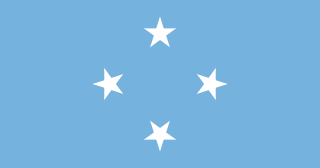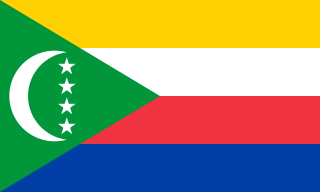A Christian denomination is a distinct religious body within Christianity that comprises all church congregations of the same kind, identifiable by traits such as a name, particular history, organization, leadership, theological doctrine, worship style and, sometimes, a founder. It is a secular and neutral term, generally used to denote any established Christian church. Unlike a cult or sect, a denomination is usually seen as part of the Christian religious mainstream. Most Christian denominations refer to themselves as churches, whereas some newer ones tend to interchangeably use the terms churches, assemblies, fellowships, etc. Divisions between one group and another are defined by authority and doctrine; issues such as the nature of Jesus, the authority of apostolic succession, biblical hermeneutics, theology, ecclesiology, eschatology, and papal primacy may separate one denomination from another. Groups of denominations—often sharing broadly similar beliefs, practices, and historical ties—are sometimes known as "branches of Christianity". These branches differ in many ways, especially through differences in practices and belief.
The Catholic Church in the Comoros is part of the worldwide Catholic Church, under the spiritual leadership of the Pope in Rome.

Christianity came to North Africa in the Roman era. According to historian Theodor Mommsen what is now Mediterranean Algeria was fully Christian by the fifth century. A notable Berber Christian of Algeria was Saint Augustine, important saints in Christianity. Christianity's influence declined during the chaotic period of the Vandal invasions but was strengthened in the succeeding Byzantine period. After the Arab invasions of the 7th century, Christianity began to gradually disappear.

Christianity is the religion of 6% of the population of Djibouti. Christians are mostly of Ethiopian and European ancestry. Most Christians are Ethiopian Orthodox or Roman Catholic. The constitution of Djibouti includes freedom of religion, although Islam is the state religion. There is a tolerant attitude between religions in general. Proselytizing by any faith in public is not allowed.

Christianity is a minority religion in Yemen. The Yemeni constitution mentions religious liberty. There are three churches in Aden.

Christianity is a minority religion in Libya. It has been present in Tripolitania and Cyrenaica since Roman times.

The Christian community in Qatar is a diverse mix of European, North and South American, Asian, Middle Eastern and African expatriates. In 2023, they form around 13.7% of the total population. Many of them are from the Philippines, Europe, and India. Most Christians in Qatar are not Arab Christians.

Christianity is the most prevalent religion in the United States. Estimates from 2021 suggest that of the entire U.S. population about 63% is Christian. The majority of Christian Americans are Protestant Christians, though there are also significant numbers of American Roman Catholics and other Christian denominations such as Latter-day Saints, Orthodox Christians and Oriental Orthodox Christians, and Jehovah's Witnesses. The United States has the largest Christian population in the world and, more specifically, the largest Protestant population in the world, with nearly 210 million Christians and, as of 2021, over 140 million people affiliated with Protestant churches, although other countries have higher percentages of Christians among their populations. The Public Religion Research Institute's "2020 Census of American Religion", carried out between 2014 and 2020, showed that 70% of Americans identified as Christian during this seven-year interval. In a 2020 survey by the Pew Research Center, 65% of adults in the United States identified themselves as Christians. They were 75% in 2015, 70.6% in 2014, 78% in 2012, 81.6% in 2001, and 85% in 1990. About 62% of those polled claim to be members of a church congregation.
Protestants are about 2,009,374 in Sudan. They are forbidden to proselytize. The law makes apostasy punishable by death. The southern ethnic groups fighting the civil war largely are followers of traditional indigenous religions or Christians.

Christianity is the religion of 6.5% of the population of Oman, which equals to about 300,000 people. Ninety Christian congregations exist in the country. There is little official record of Christianity in Oman until the arrival of the Portuguese in 1504, but ruins from what is thought to have been a church were located in Suhar. Additionally, Chronicle of Arbela tells of a diocese at Bet Mazunaye, an area which included Oman. However, the authenticity of the sixth-century text is disputed amongst scholars.

Religion in Angola is diverse, with Christianity being the most widely professed faith. Roman Catholics constitute about half of the population. Other Christian denominations include Baptists, Methodists, Congregationalists, Lutherans, Reformed Churches and Seventh-day Adventists and Jehovah's Witnesses - all these denominations making up about a quarter of the population.

Islam is the dominant religion in Libya. Other than the vast majority of Sunni Muslims, there are also small Christian communities, composed exclusively of immigrants. Coptic Orthodox Christianity, which is the Christian Church of Egypt, is the largest and most historical Christian denomination in Libya. There are over 60,000 Egyptian Copts in Libya, as they comprise over 1% of the population alone. There are an estimated 40,000 Roman Catholics in Libya who are served by two Bishops, one in Tripoli and one in Benghazi. There is also a small Anglican community, made up mostly of African immigrant workers in Tripoli; it is part of the Anglican Diocese of Egypt.
Freedom of religion in Comoros is addressed in the constitution which proclaims equality of rights and obligations for everyone.
In Qatar, the Constitution, as well as certain laws, provide for freedom of association, public assembly, and worship in accordance with the requirements of public order and morality. Notwithstanding this, the law prohibits proselytizing by non-Muslims and places some restrictions on public worship. Islam is the state religion.
Of the religions in Tunisia, Islam is the most prevalent. It is estimated that approximately 99% of Tunisia's inhabitants identify themselves as Muslims.

Religion in Eritrea consists of a number of faiths. The two major religions in Eritrea are Christianity and Islam. However, the number of adherents of each faith is subject to debate. Estimates of the Christian share of the population range from 47% and 63%, while estimates of the Muslim share of the population range from 37% to 52%.

The population of the Federated States of Micronesia is predominantly Christian, although the representation of various denominations varies greatly from state to state. The government generally upholds the freedom of religion, but the small Muslim community in the country faces significant discrimination from both general society and the government.

Christianity is the largest religion in Nauru, with Nauru Congregational Church being the largest denomination, encompassing 35.71% of the population as of the 2011 census.

The predominant religion in the Comoros is Islam, with a small Christian minority. Although the constitution, as revised in 2018, removed the reference to a state religion in the 2009 constitution, stating simply that Sunni Islam is the source of national identity, a 2008 law promulgated in January 2013 outlawed the practice of other forms of Islam in the country. Propagation of non-Islamic religions is prohibited.

Christianity is the religion adhered to by 20.7 per cent of the population of Mauritius. Of these, 80.3 per cent are Roman Catholics. The Mauritian Creole and Franco-Mauritian ethnic groups are mostly Christian and significant parts of the Sino-Mauritian ethnic group are also mainly Christian. Mauritius got independence in 1968 and there was no state religion in Mauritius defined in the constitution. The religious organizations present at the time of independence, namely, Roman Catholic Church, Church of England, Presbyterian Church, Seventh-day Adventist, Hindus and Muslims are recognized by parliamentary decree.








